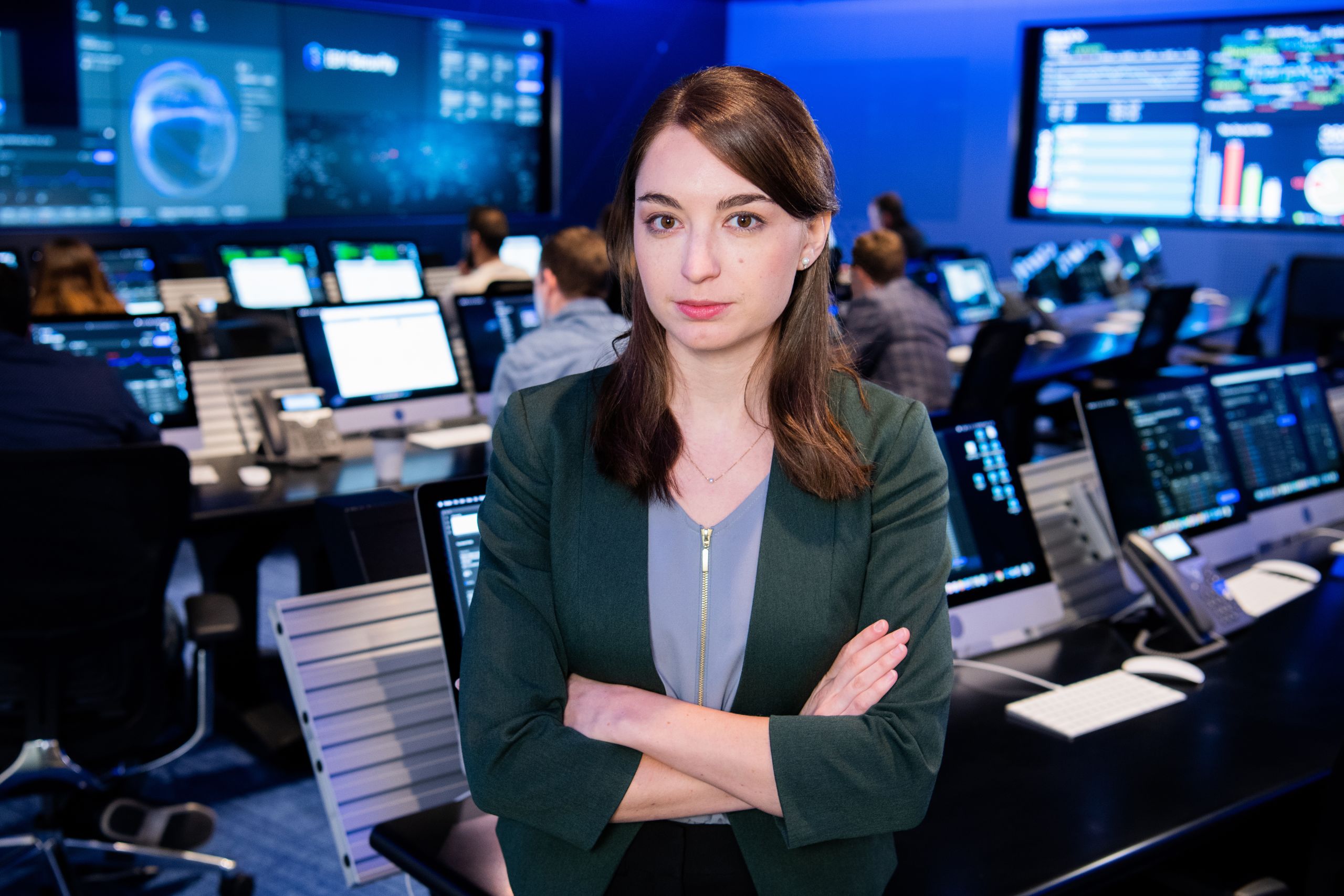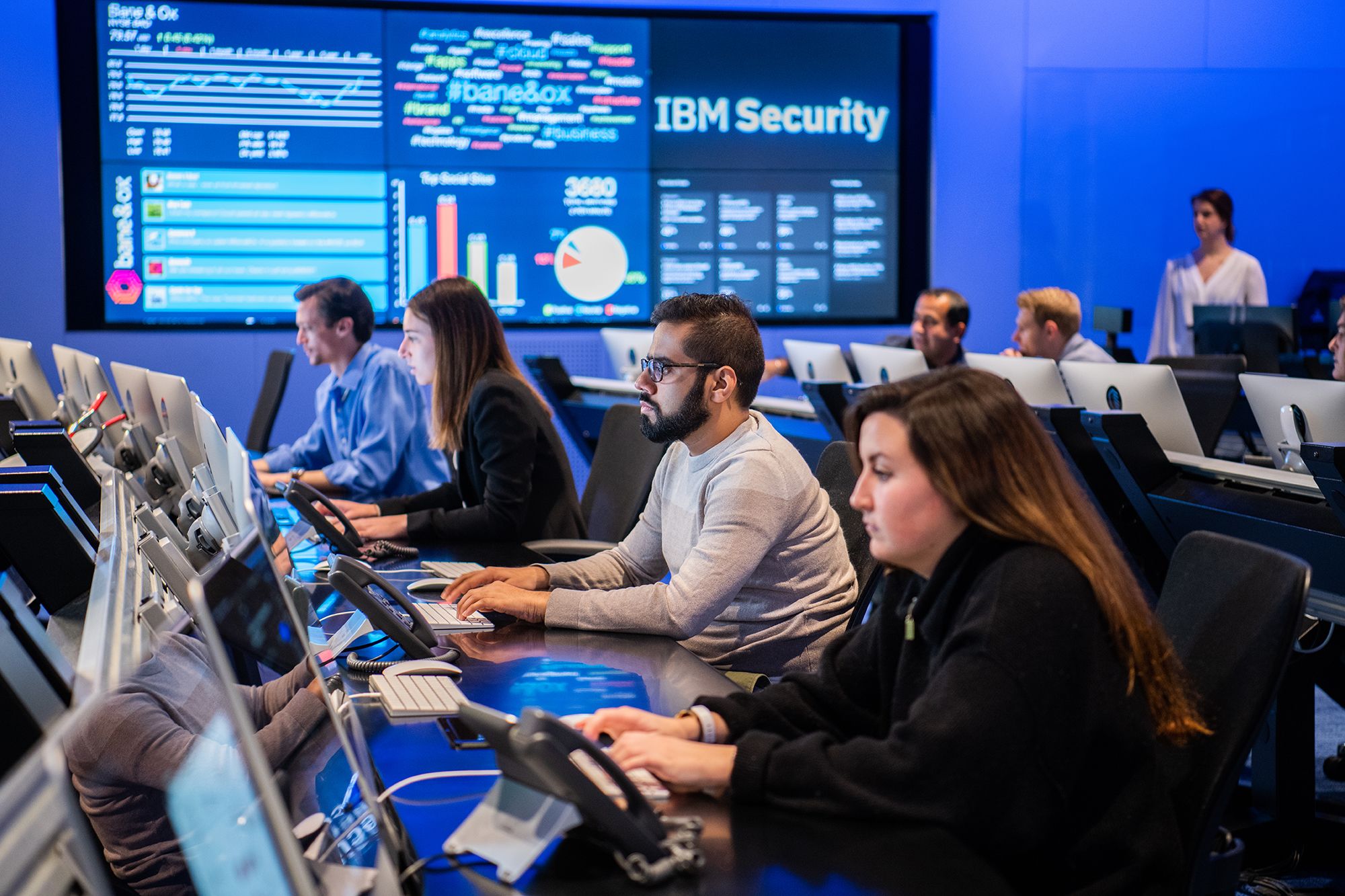Theater and Technology Join Forces in the War Against Cyberattacks

It’s not every day your career includes playing pretend, especially in a field as technical as cybersecurity. But as hackers and their methods become more creative and sophisticated, so too must the efforts of those who protect and secure data.
As every facet of our lives becomes increasingly reliant on digital technology and as that reliance permeates virtually every facet of our lives, the risk of cyberattacks continues to intensify, just as the consequences of such attacks worsen. It’s become even more crucial to have nimble, experienced, and prepared cybersecurity experts at the top of their game to defend against these online threats, regardless of what form they may take.
A new, digitally reliant world facing unprecedented problems requires experts driven to pursue novel solutions outside of the expected.
This is where Rochester Institute of Technology comes into the picture.
Allison Ritter, a talented 2014 RIT graduate with a major in media arts and technology and a minor in theatre arts, has pioneered a way to ensure the readiness of those experts, one that engages, challenges, and educates. As the creative director of IBM’s X-Force Command in Cambridge, Mass., Ritter runs realistic simulations to help clients learn about the dangers of cybersecurity threats, putting them in situations where their company is being targeted for a security breach, forcing them to confront and defeat it. By the end of the simulation, the experience helps clients learn how to cooperate with other departments in their respective organizations to stop a major security breach.
“I’m stepping away from showing a slide deck and into giving an experience, and a lot of that comes from my creative and technical background,” said Ritter.
What’s particularly striking is that this position didn’t exist before Ritter signed on with IBM. “The cyber range wasn’t developed when I was interviewing for the other jobs at IBM, but I was so interested in the idea and I kept asking about it,” said Ritter. “In the end, they hired me, though the department didn’t exist yet, and I was given the opportunity to grow the division.”
Ritter was hired in 2016 as a threat gamification engineer before moving up to her role as creative director. Since being hired, she has been instrumental in the development of the cyber range. The technical knowledge she gained from her media arts and technology program helps her teach clients to understand the threats that cyberattacks bring. Meanwhile, she gets to use the performance and narrative skills from her theatre arts minor to enhance the simulations she runs, introducing elements of drama and storytelling to help create a more theatric and realistic scenario for her clients.
Multiple organizations have worked with Ritter to improve their chances against cyberattacks, including companies, governmental bodies, and militaries from across the globe. She has run simulations for over 2,000 corporate executives since she joined IBM.
Ritter credits much of what she has been able to do to her unique combination of technical and creative skills. As part of her theatre arts minor, Ritter participated in a number of RIT’s many theater productions sponsored by the College of Liberal Arts and National Technical Institute for the Deaf, giving her lots of practice in acting and critical thinking alongside her classes in her media arts and technology program.



Innovating the Future of Work
The future is interdisciplinary and RIT is uniquely positioned to prepare our students to excel in that environment. We’ve long recognized that amazing things happen when you combine technology, the arts, and design. Ritter’s experience is just one of many that multiple students at RIT encounter. All students are required to complete an immersion, a collection of three courses centered around the subject of their choice. They also have the option to expand their chosen immersions into minors. RIT offers more than 130 minors and immersions for students to take alongside their program classes, ranging across a multitude of subjects like creative writing, software engineering, and of course, theatre arts.
Many of RIT’s programs also incorporate classes across multiple colleges, an example being the digital humanities and social sciences major, which combines classes from the College of Liberal Arts, the College of Art and Design, and Golisano College of Computing and Information Sciences.
In addition, the School of Individualized Study allows students to customize their own major and create a program that follows their interests. This has led to a number of unique programs being designed by students, such as one that focuses on comic studies.
These programs are proud examples of one of RIT’s core beliefs: that exposure to an interdisciplinary education will help students develop a diverse set of skills and lead to new and innovative solutions for the problems of the modern age. By anticipating the needs of the future, RIT is ensuring that its graduates will have the tools, the know-how, and the flexibility to innovate the future of work and establish themselves as leaders in emerging careers.


